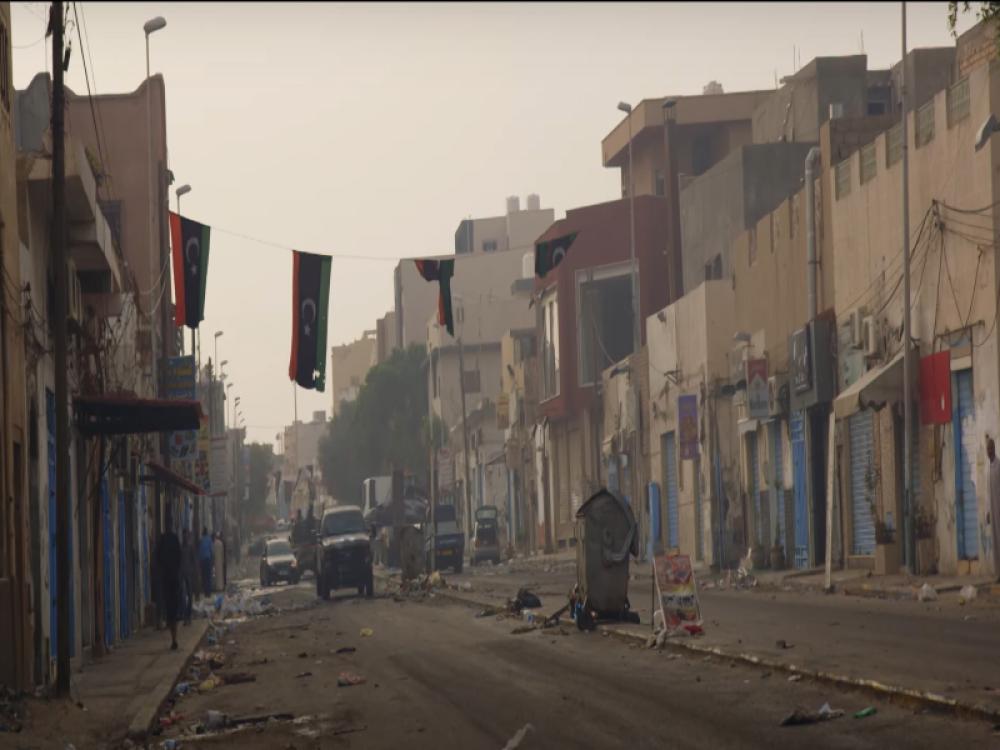Just Earth News | @justearthnews | 23 Jun 2021, 09:33 am Print
 Libya peace talks
Libya peace talks Image Credit: YouTube Video Grab
World powers met in Germany's Berlin to discuss solutions for lasting peace in Libya, the war-torn North African country, by ensuring it conducts general elections planned for December 24, according to media reports.
The UN-backed talks have US Secretary of State Antony Blinken, foreign ministers of France and Egypt and representatives of Libya's interim government, according to an Al Jazeera report.
Blinken underscored the importance of national elections in Libya, saying that it was the only way to ensure peace and stability in the North African country.
“We share the goal of a sovereign, stable, unified and secure Libya, free from foreign interference,” he said on Wednesday, quoted Al Jazeera. “For this to happen national elections need to go forward in December. That means urgent agreement is needed on constitutional and legal issues."
The effort to broker peace in the conflict-racked country is the second round in Berlin. The first round of talks, attended by presidents of Turkey, Russia and France, was held in January 2020.
German Foreign Minister Heiko Maas reminded the participants of pledges made last year for an end to international interference and for foreign mercenaries or troops to withdraw, the report said.
“Those who promised to withdraw last time in Berlin have not kept their word,” said Maas in an interview with Die Welt daily, the Al Jazeera report informed.
“For the Libyans to determine the fate of their country again, the foreign forces must leave. The transitional government has also made that clear,” he stressed.
According to the United Nations, there are at least 20,000 foreign fighters and mercenaries in Libya, which is viewed as a threat to the UN recognised transition from violence and instability to elections.
Libya, a major North African oil producer, has had little peace or stability since the NATO-backed uprising against Muammar Gaddafi in 2011.
The country was split in 2014 between warring eastern and western factions.
The Government of National Accord (GNA) is recognised by the UN in the western part. The eastern part of the country is led by renegade military commander Khalifa Haftar.
Both the factions are backed by armed groups and foreign governments.
In April 2019, Haftar and his forces backed by UAE and Egypt launched an offensive to capture Tripoli. The campaign that continued for 14 months failed after Turkey increased its support with advanced military equipment, troops and thousands of mercenaries.
After Turkey-backed forces of the GNA dislodged Haftar's forces, the two sides agreed to a ceasefire in Geneva.
While the situation has improved since then, the UN has pointed out that the presence of foreign troops and soldiers has stalled the progress.
The western powers have continuously called on the foreign fighters to depart --a key requisite of the polls. However, Russian fighters supporting Haftar's side are still present, the Al Jazeera report said.
There are Turkish troops in Tripoli which Turkey argues are part of a bilateral agreement with the GNA government and cannot be lumped with foreign troops whose presence is said to be detrimental to Libya's transition to elections and stability.
However, withdrawal of troops should be done while maintaining a delicate balance according to German foreign minister, who says sudden withdrawal could be used by the other side to launch a sudden offensive.
“Foreign forces must leave the country in a gradual and uniform manner, so that there won’t be a sudden military imbalance that could be used by one side for a sudden offensive,” said Maas, quoted Al Jazeera.
- Mexico in chaos: Army kills infamous cartel boss ‘El Mencho’
- US: Armed intruder shot dead after breaching Trump’s Mar-a-Lago Security. What we know so far?
- Trusted ride turns terrifying: UK taxi driver jailed for 9 years for raping sleeping passenger
- Border on fire: Dozens of Afghan civilians killed as Pakistan launches airstrikes
- Anthropic unleashes Claude Code Security to find critical bugs in code





-1763561110.jpg)
